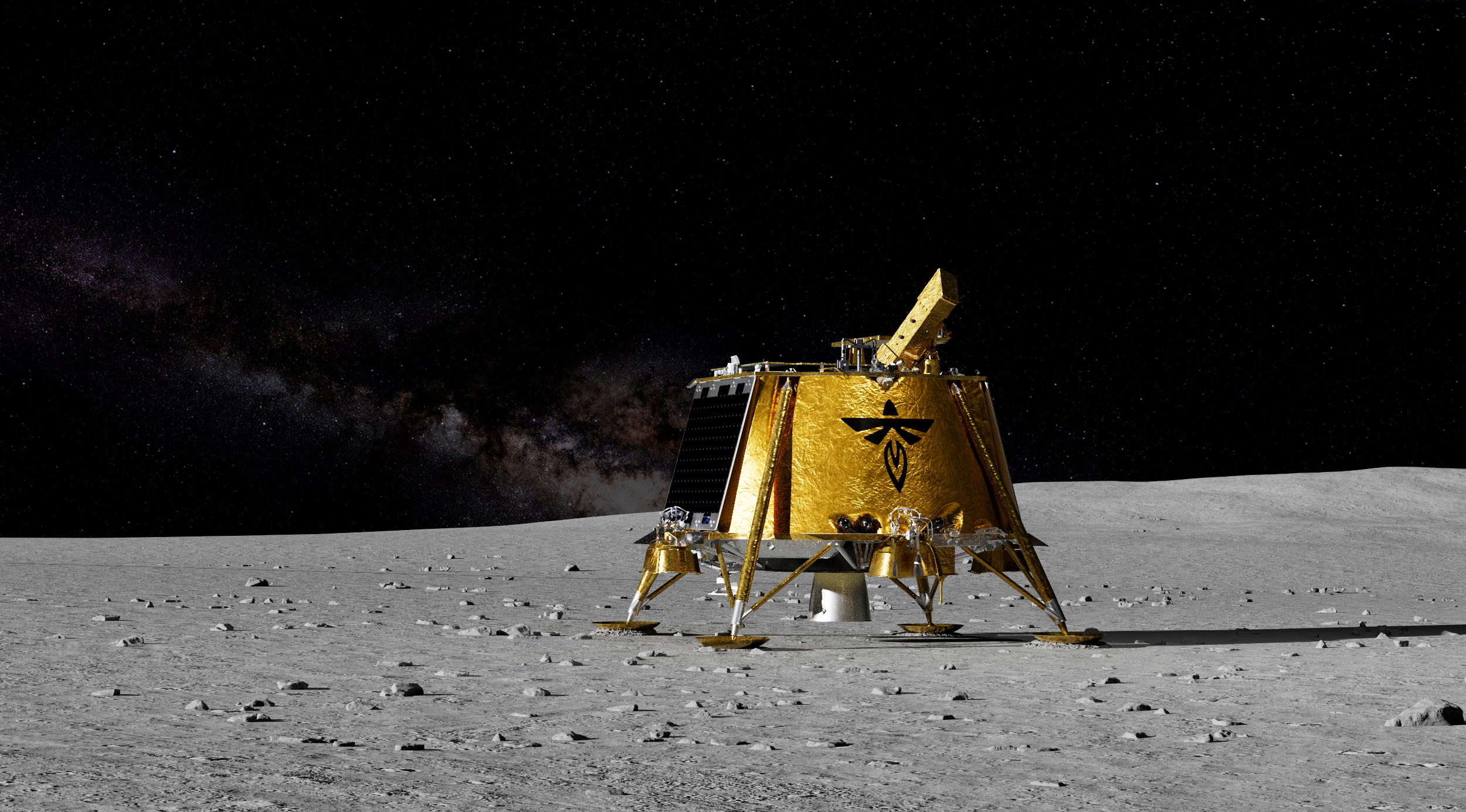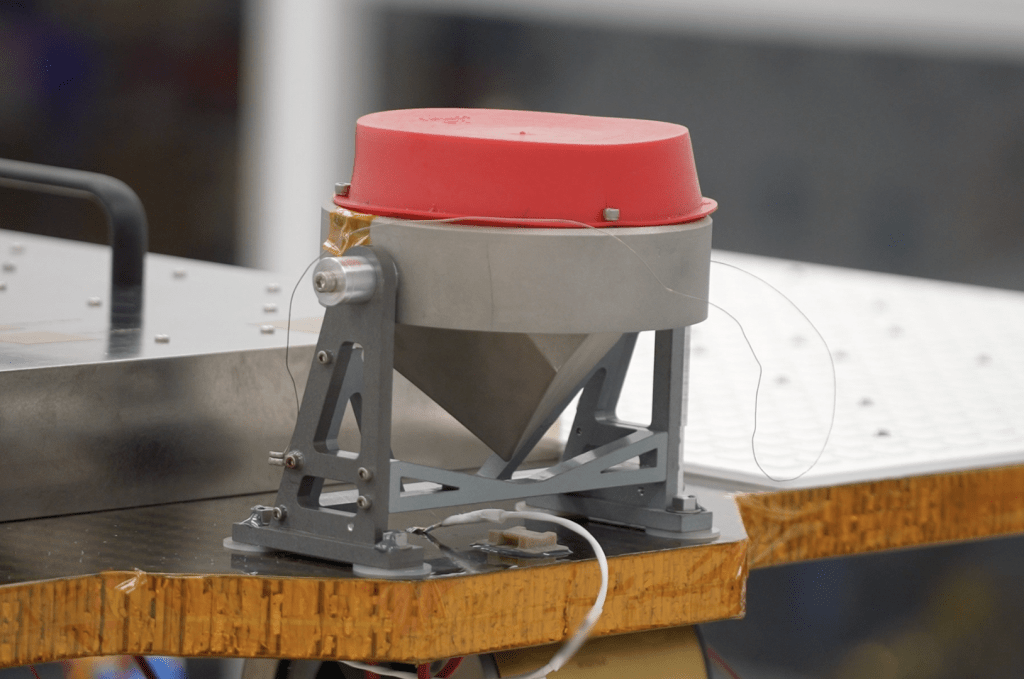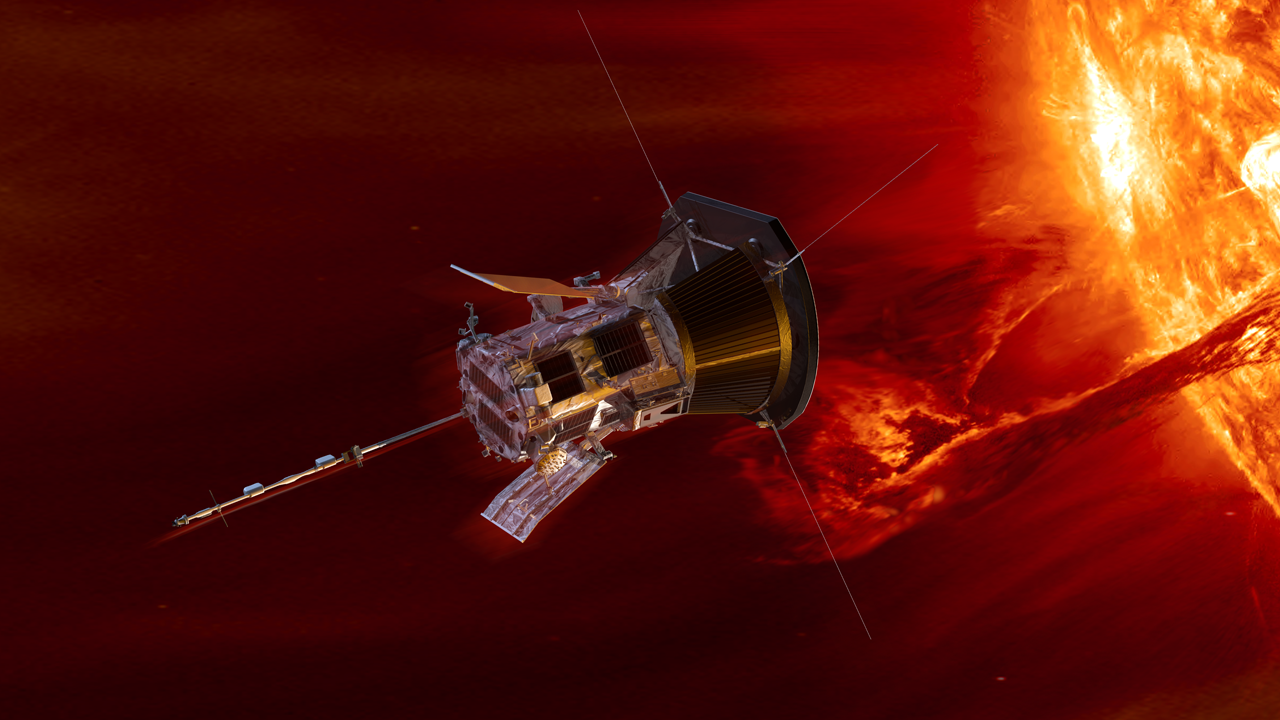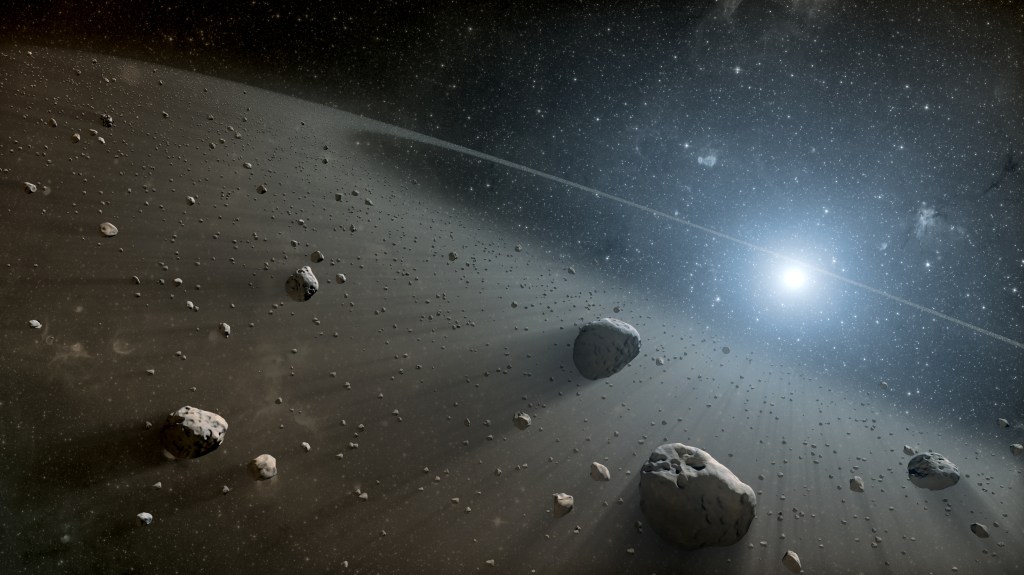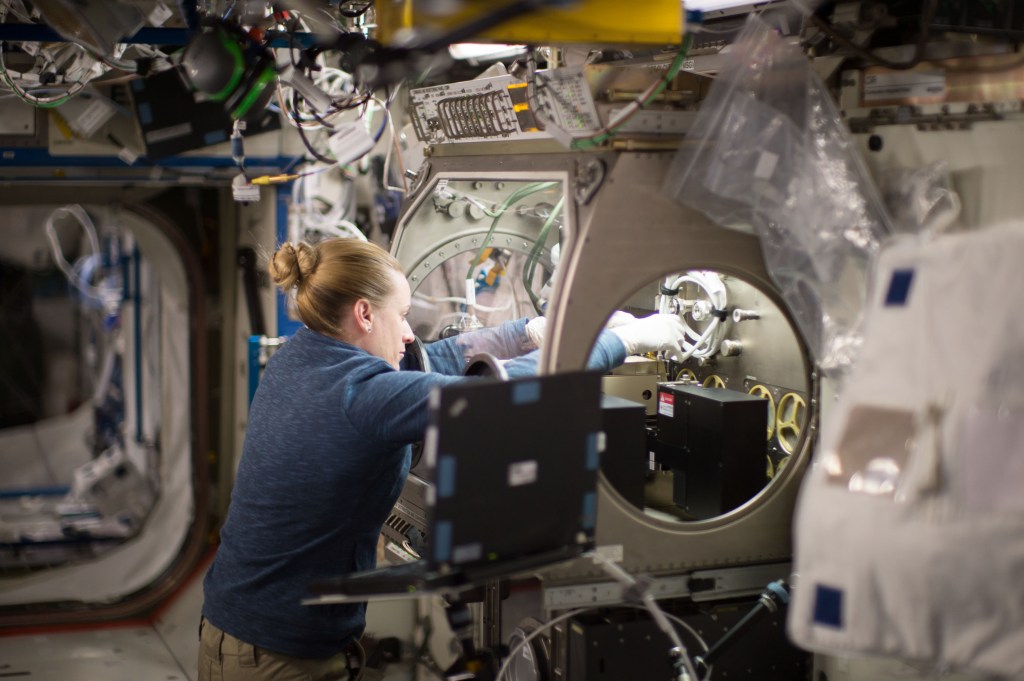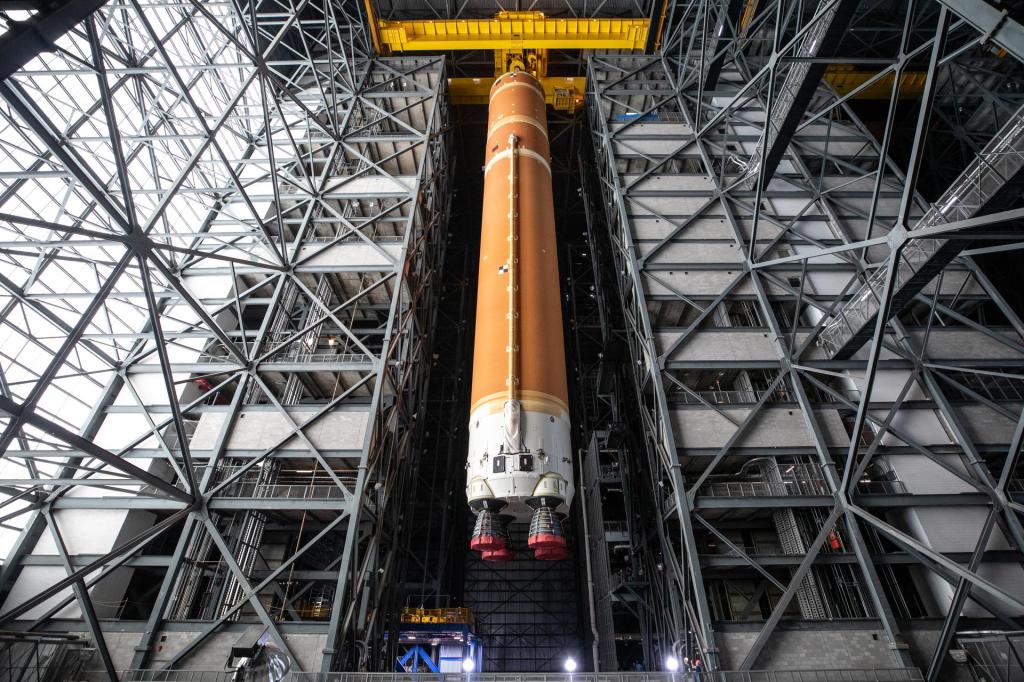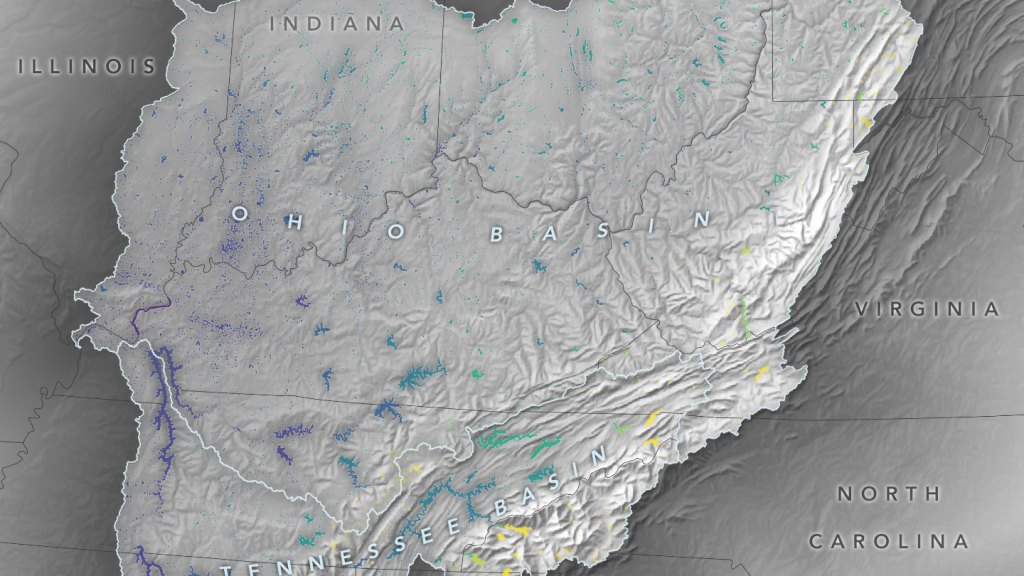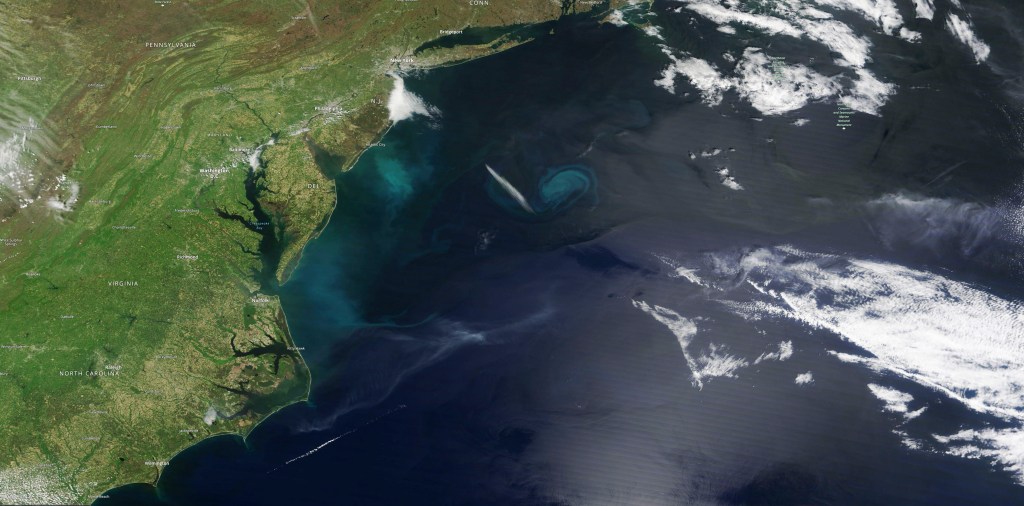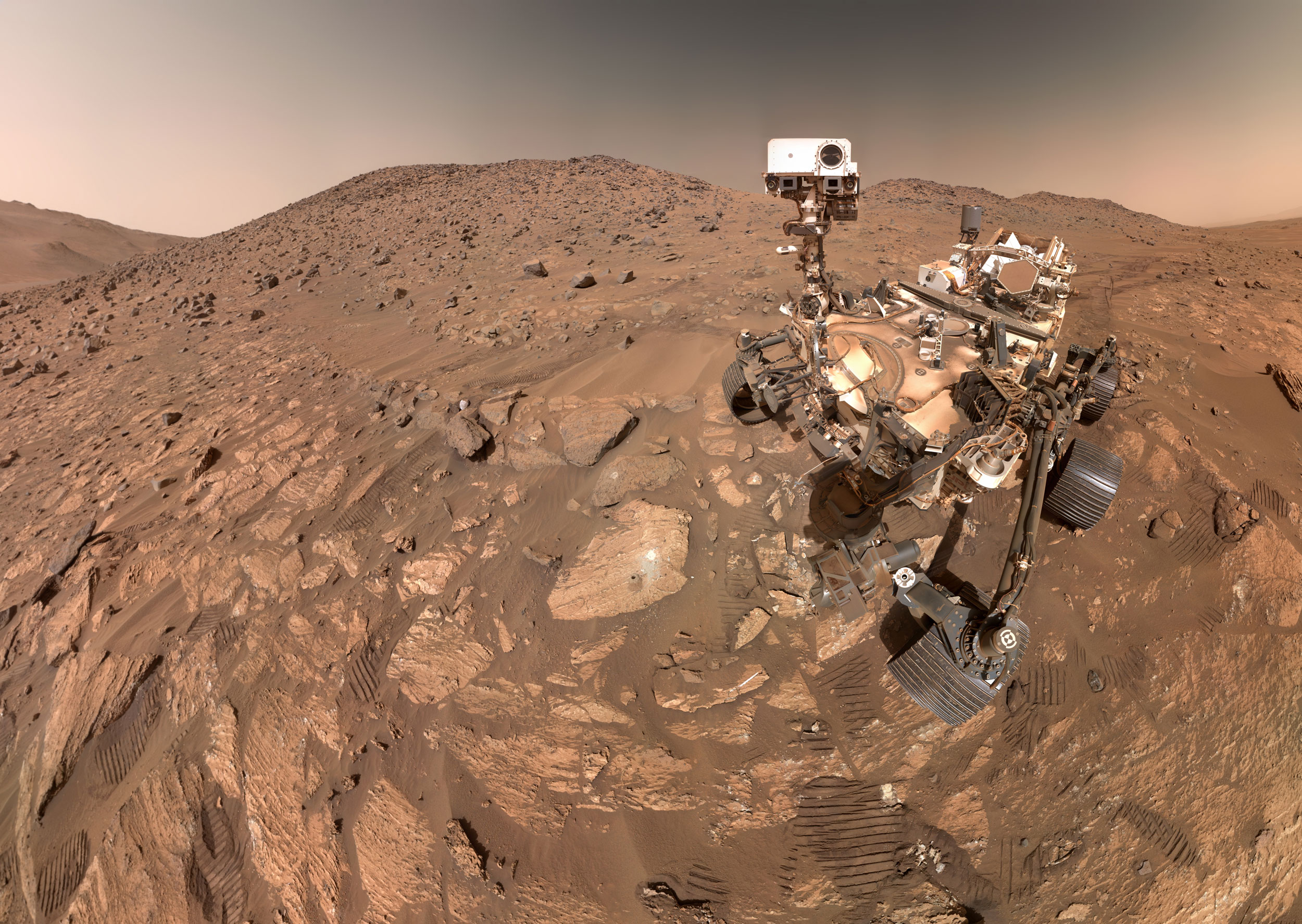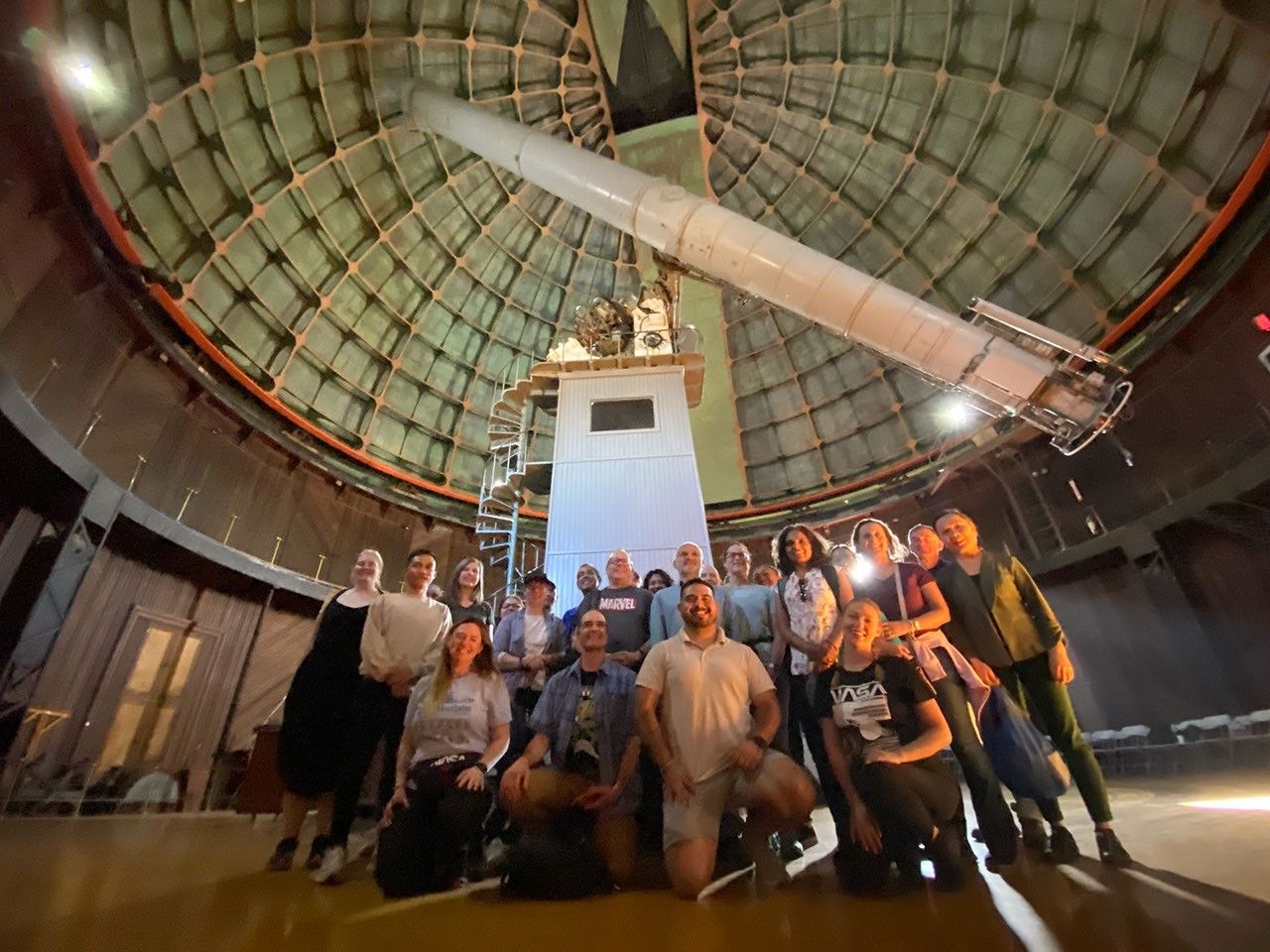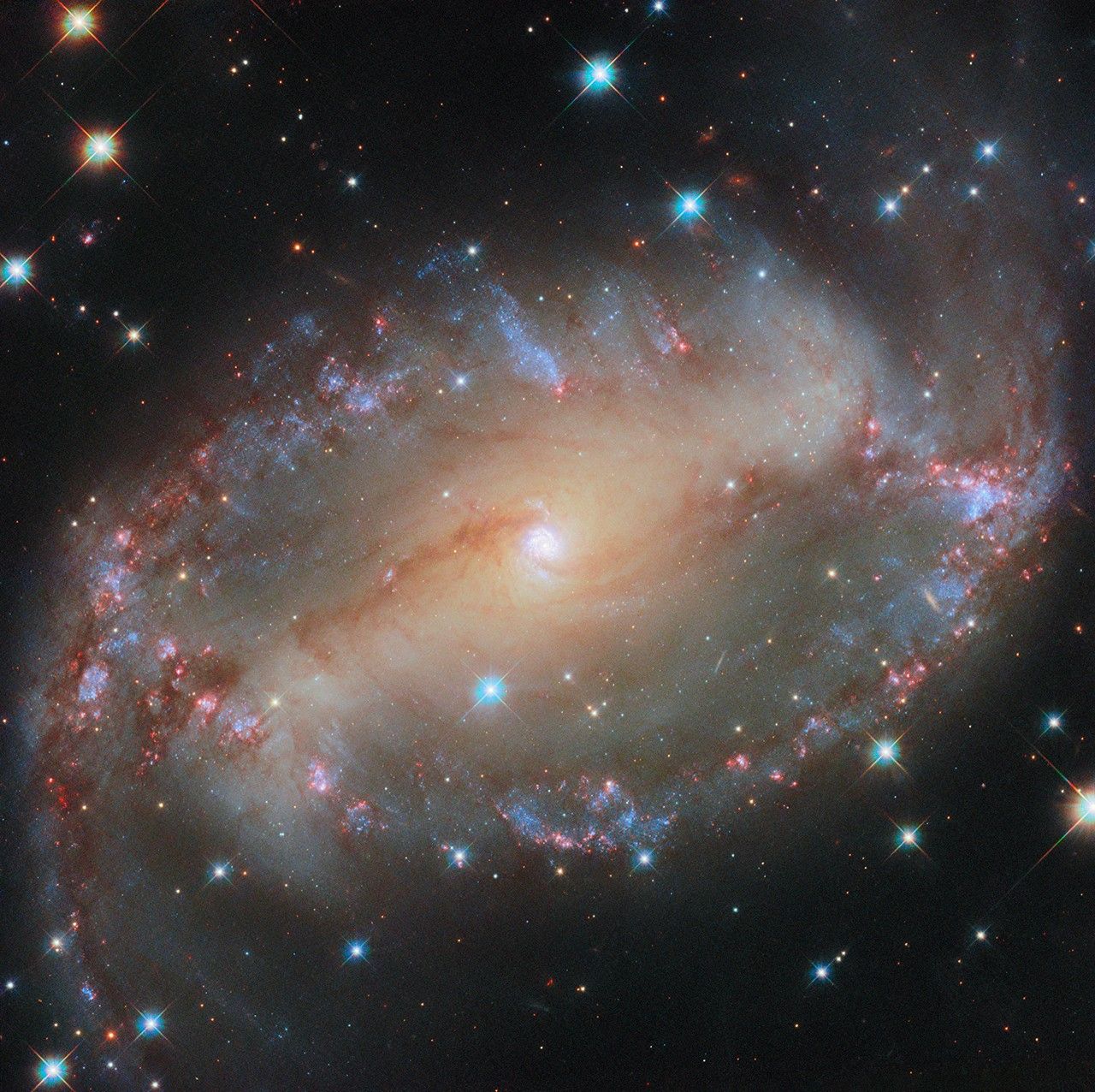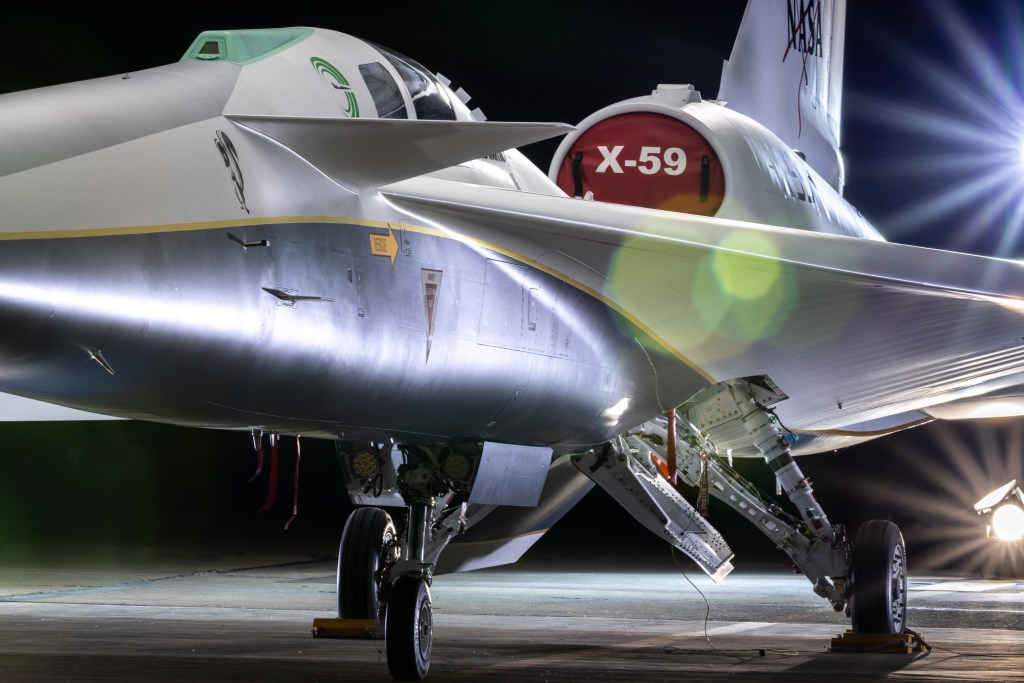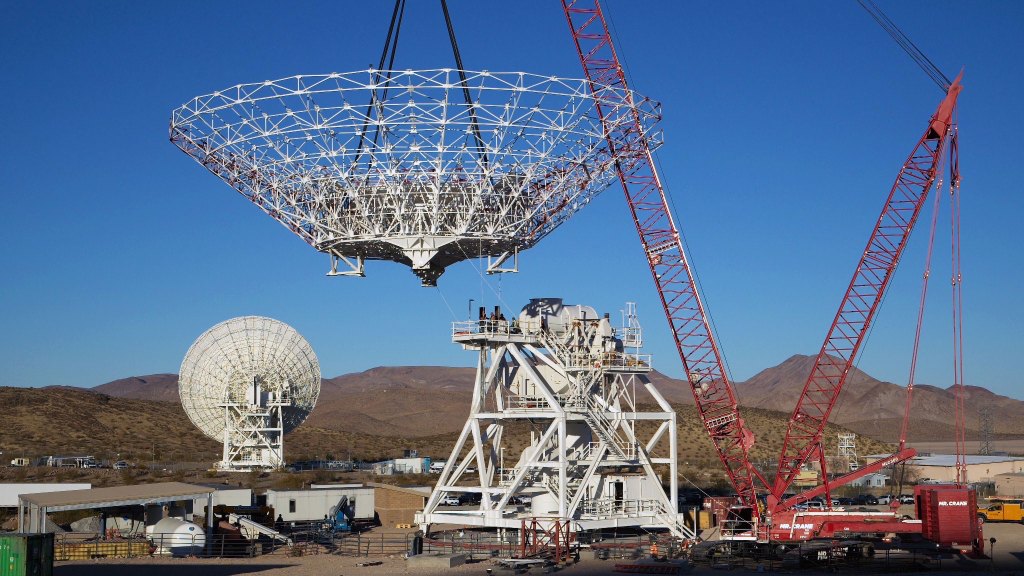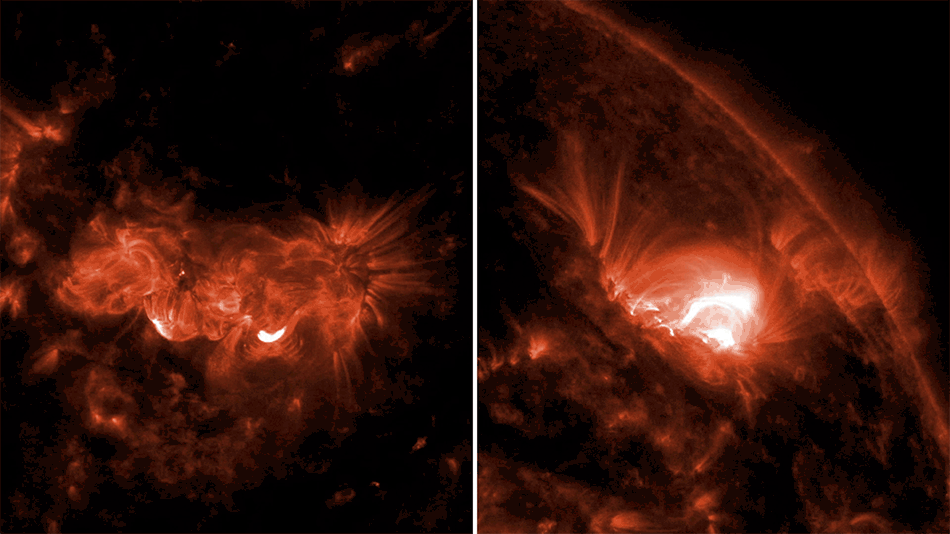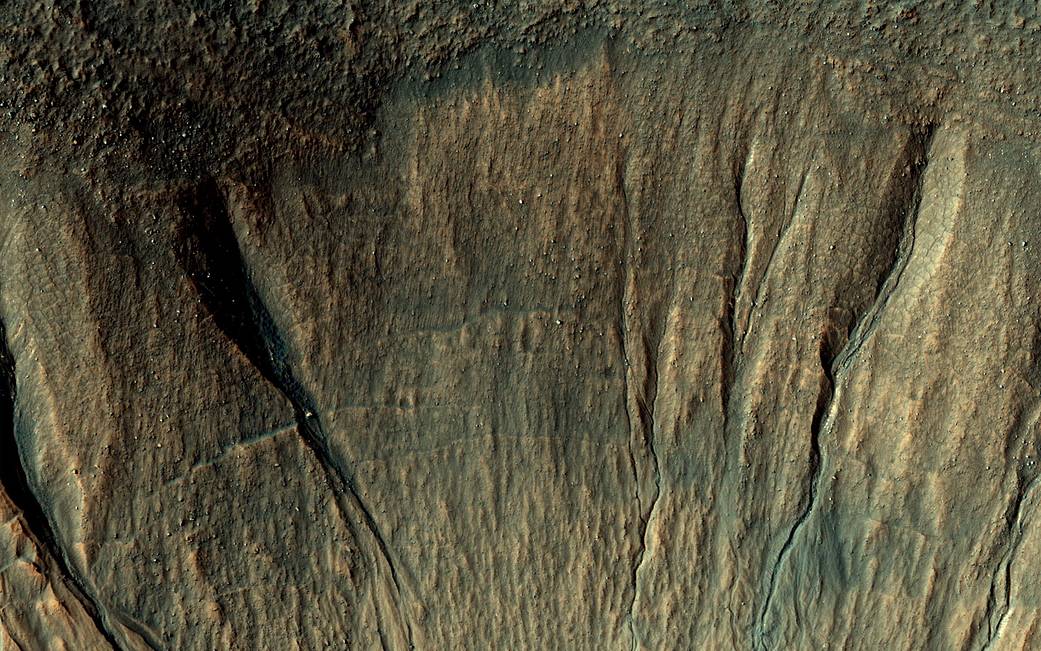This image covers a portion of a typical impact crater in Terra Sirenum at about 40 degrees south latitude on Mars.
At the top of the image, outside the crater rim, there is a mid-latitude mantle, rough in places where ice may have sublimated. Below the crater rim, on the steep, south-facing slope, are gullies. These are erosional features with depositional fans. Some of the gully fans have a bluish color: these are probably quite recent deposits, less than a few tens of years old.
On the floor of the crater (bottom of this image) are ridges that likely formed from the flow of ice, perhaps a few million years ago.
The map is projected here at a scale of 50 centimeters (19.6 inches) per pixel. [The original image scale is 50.3 centimeters (19.8 inches) per pixel (with 2 x 2 binning); objects on the order of 151 centimeters (59 inches) across are resolved.] North is up.
The University of Arizona, Tucson, operates HiRISE, which was built by Ball Aerospace & Technologies Corp., Boulder, Colo. NASA’s Jet Propulsion Laboratory, a division of Caltech in Pasadena, California, manages the Mars Reconnaissance Orbiter Project for NASA’s Science Mission Directorate, Washington.

